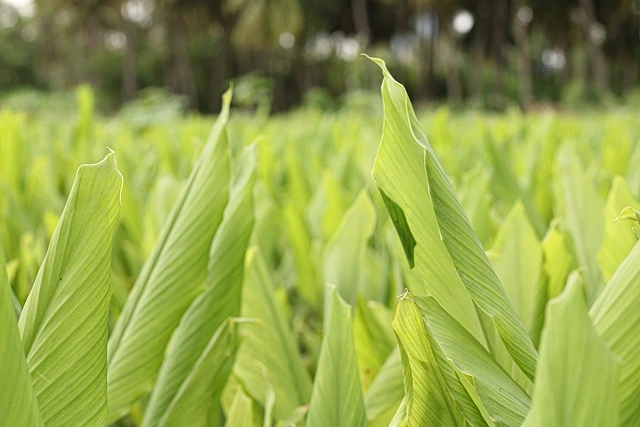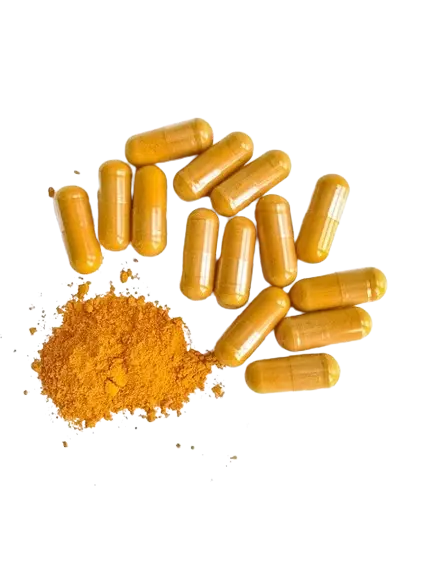Interesting Facts
Fact 1: The use of turmeric dates back nearly 4000 years to the Vedic culture in India, where it was used as a culinary spice and had some religious significance. It probably reached China by 700 AD, East Africa by 800 AD, West Africa by 1200 AD, and Jamaica in the eighteenth century. In 1280, Marco Polo described this spice, marveling at a vegetable that exhibited qualities so similar to that of saffron.

Fact 2: Turmeric is one of the key ingredients in many Asian dishes, imparting a mustard-like, earthy aroma and pungent, slightly bitter flavor to foods. It is a principal ingredient of curry powders. Although typically used in its dried, powdered form, turmeric also is used fresh, like ginger. It is used in many products such as canned beverages, baked products, dairy products, ice cream, yogurt, yellow cakes, orange juice, biscuits, popcorn, cereals and sauces.

Fact 3: Turmeric paper, also called curcuma paper or in German literature, Curcumapapier, is paper steeped in a tincture of turmeric and allowed to dry. It is used in chemical analysis as an indicator for acidity and alkalinity. The paper is yellow in acidic and neutral solutions and turns brown to reddish-brown in alkaline solutions, with transition between pH of 7.4 and 9.2.

Health Benefits
Benefit 1: Lowers risk of heart disease
With its ability to help reduce inflammation and oxidation, turmeric could lower
the risk of heart disease. Studies show that turmeric may help reverse the heart
disease process. In healthy middle-aged and older adults who took curcumin
supplements for 12 weeks, resistance artery endothelial production — which
plays a significant role in high blood pressure — was increased. Another study
followed 121 people who had coronary artery bypass surgery. A few days before and
after the surgery, the group that took 4 grams of curcumin a day saw a 65% decreased
risk of having a heart attack in the hospital.

Benefit 2: Helps fight depression
If you have depression, the protein known as brain-derived neurotrophic factor (BDNF)
is reduced and your hippocampus, which helps with learning and memory, starts to shrink.
A study shows that curcumin can boost BDNF levels and may reverse changes. Another study
shows that curcumin was just as effective as fluoxetine (Prozac) in lessening symptoms of
depression. Curcumin may also increase levels of serotonin and dopamine — which are chemicals
in your brain that regulate mood and other body functions.


Follow us on social media and don't miss out on more interesting facts and delicious recipes!